The houseplant community has christened its collectible rarities ‘unicorn plants’. Linda is a unicorn hunter and grows her burgeoning collection in her indoor tropical jungle, occasionally giving them a summer holiday outdoors under the banksia.
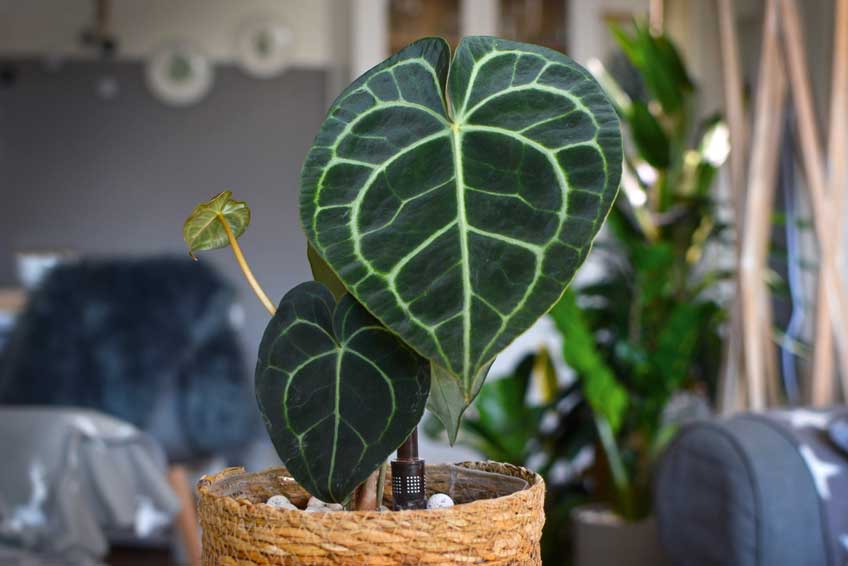
Photo- Shutterstock
Find and save
Commonly called the arum family, or the aroids, the Araceae are a family of monocotyledonous flowering plants in which flowers are borne on a
type of inflorescence called a spadix. The spadix is usually accompanied by, and sometimes partially enclosed in, a spathe or leaf-like bract. Aroids
remain one of the world’s least known botanic families. Seeds cannot be frozen or stored, so a living plant collection is the only way to conserve
them. Find these unicorn plants and many more indoor plants at Collectors’ Plant Fair,
March 28 and 29, Hawkesbury Race Club, Clarendon, NSW.
Anthurium veichii
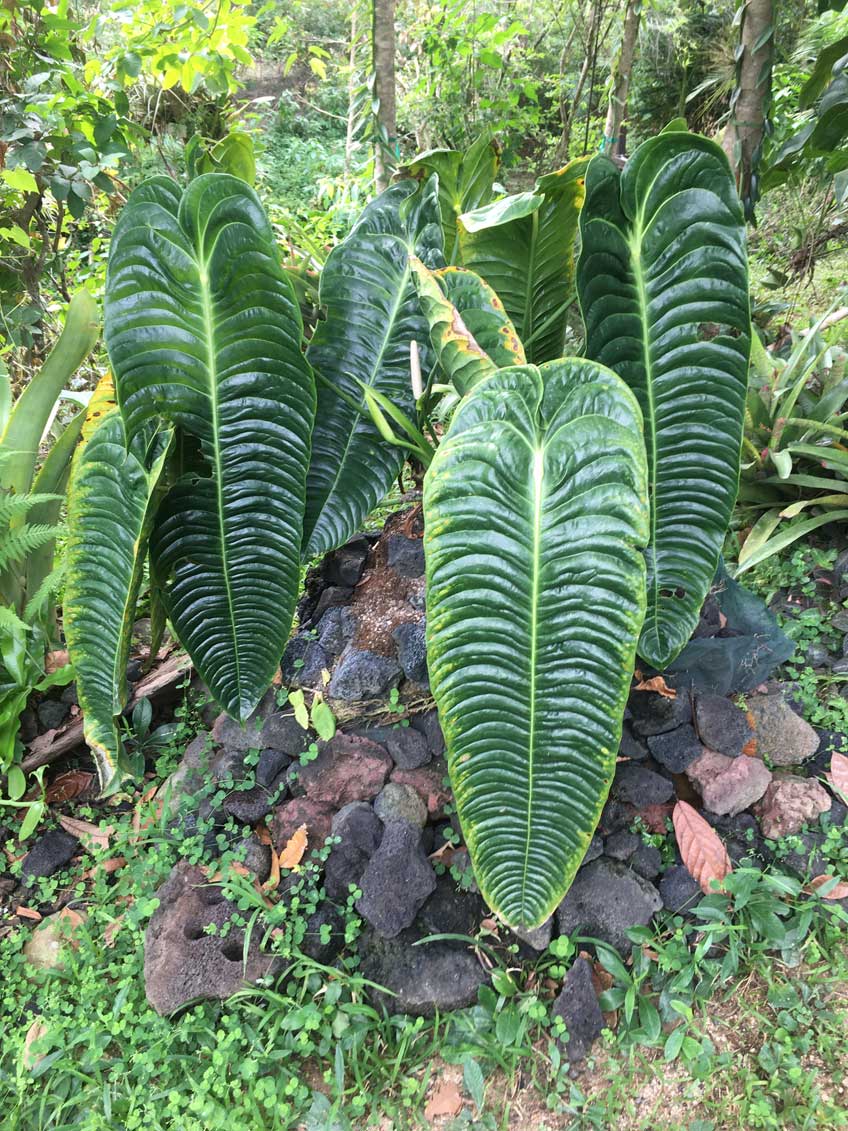
The King Anthurium from Columbia is the most collectible ‘trophy’ anthurium, grown for its pendulous, ribbed, heart-shaped leaves that hang 50-90cm down
from the pot.
Anthurium warocqueanum
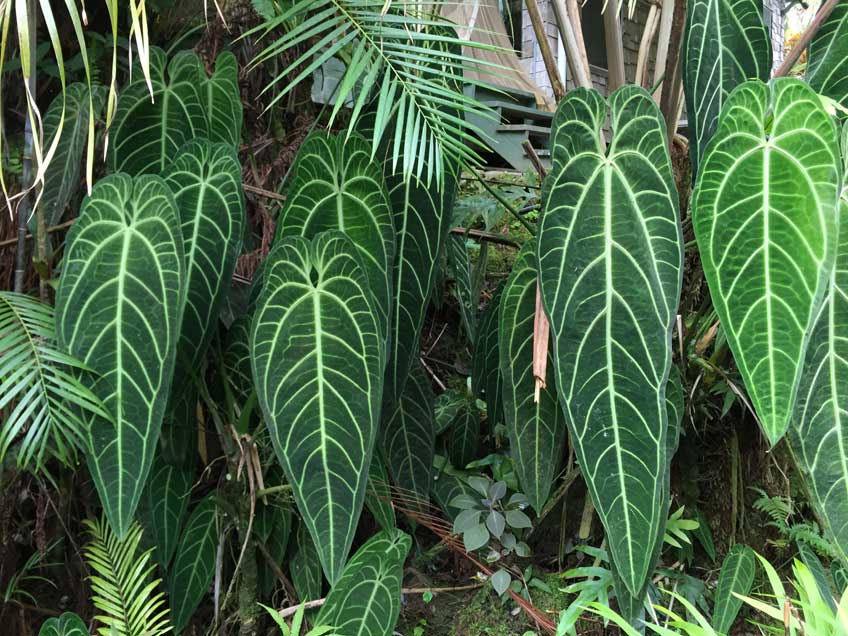
Known as the Queen Anthurium, this tropical beauty has elongated leaves with distinct ivory veins. Constant humidity is required.
Anthurium clarinervium
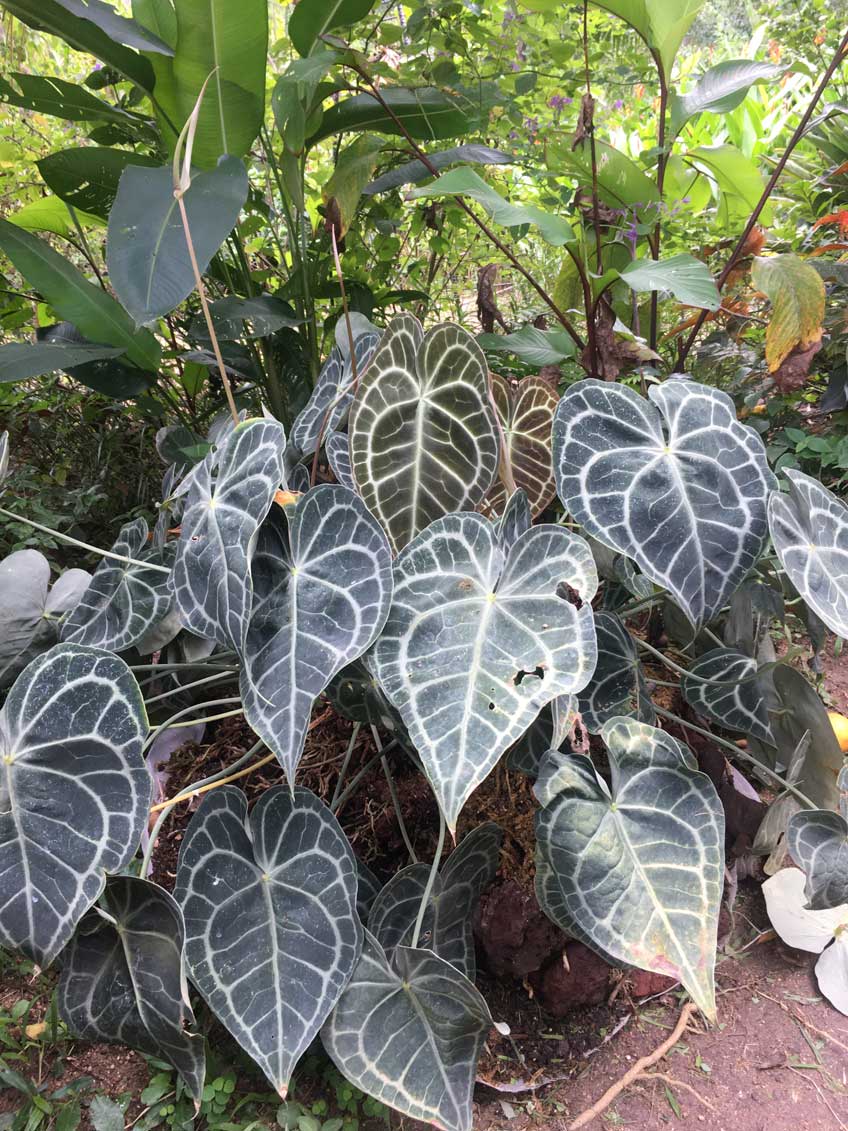
On my must-find list for its fat, heart-shaped leaves, this treasure is from the tropical jungles of Mexico so humidity is the key to its survival. Mist
frequently and evenly with lukewarm water and keep mix moist but not soggy.
Philodendron plowmanii
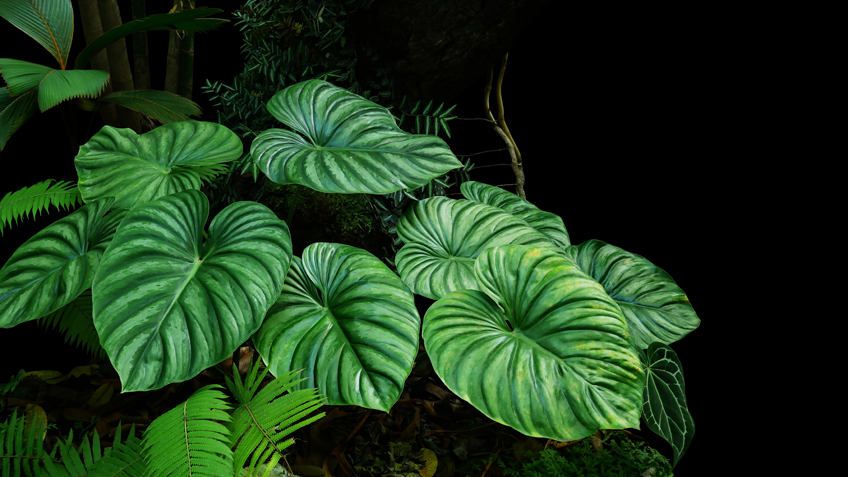
Photo- Shutterstock
This one doesn’t climb like other Philos but creeps slowly across the ground: great for a kitchen bench or office desk. It grows to 50cm high, and its
flattened, elliptical stems hold up quilted and veined leaves that unfurl spectacularly.
Philodendron squarmiferum
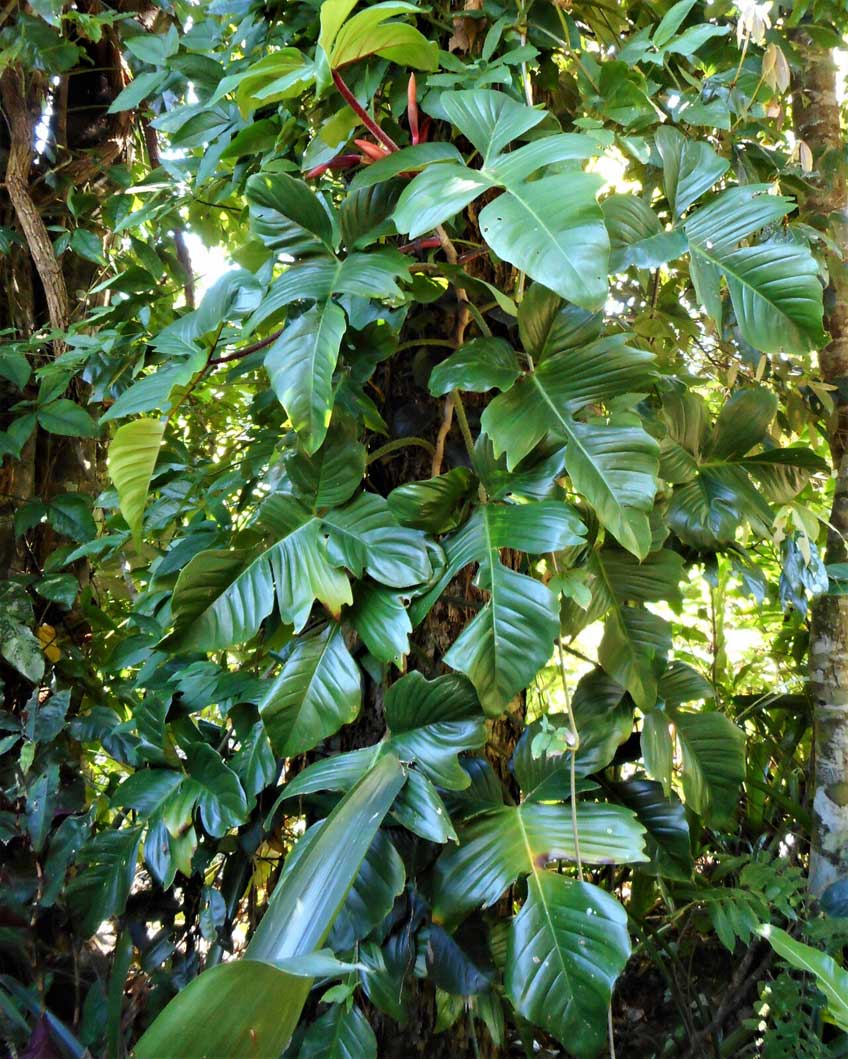
The Red Bristle philodendron, from French Guiana and Brazil, is an easy ‘unicorn’ to start with, fast-growing and happy with fortnightly watering. Its
cascading habit, distinct five-lobed leaf and striking red bristly stems are best displayed in a hanging basket.
Licuala mattanensis
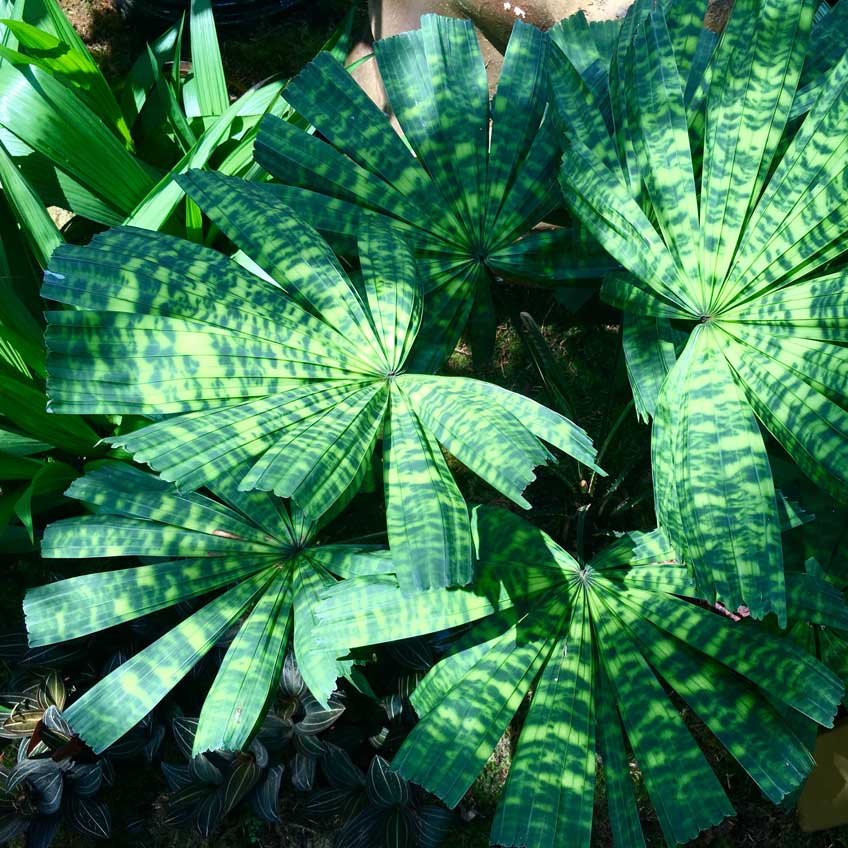
Not an aroid, but a rare variety of fan palmfound in deep shade in the jungles of Sarawak, the sharply cut spherical fronds make this highly sought after,
especially in its spotted form. Will withstand temperatures no lower than 20 degrees.